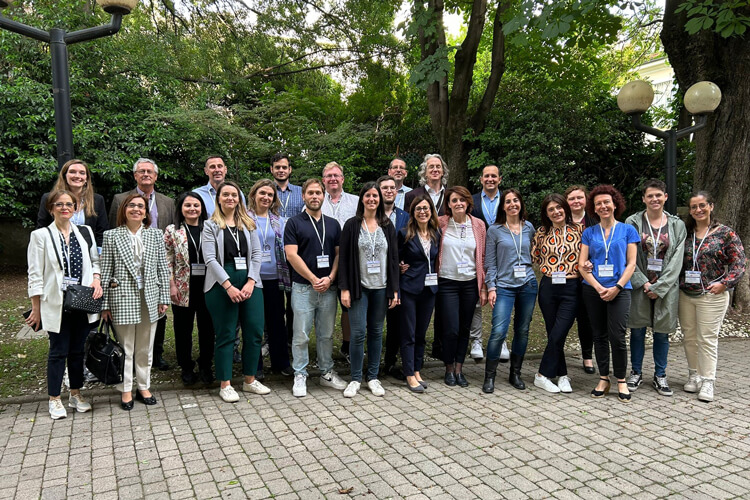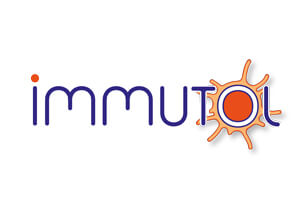New Effective Therapies for Multiple Sclerosis

Researchers with the GEVAB group at IQS form part of IMMUTOL, a European project composed of a multidisciplinary team that brings together eleven research centres, universities, hospitals, patient associations, and biotechnology companies across Europe. Its main objective is to accelerate the development and validation of an advanced therapy against multiple sclerosis (MS) and other related disorders and diseases that have an inadequate immune system response.
MS is a chronic autoimmune disease that affects the central nervous system (CNS) in which the immune system attacks myelin, a protein that coats and protects the nerve fibres (axons) of the CNS. This alters the transmission of nerve signals and ends up producing different disorders at the neurological level, resulting in sensory, motor, and cognitive impairment. The blood-brain barrier (BBB) is a physiological structure that acts as a selective physical barrier between blood and the CNS. The BBB becomes damaged in the case of MS, which favours the entry of immune cells and inflammatory proteins into the CNS.
Currently, treatment for MS is based on therapies that improve disease symptomatology, but do not directly address the underlying cause and require lifelong treatment. It is therefore crucial to develop new, safe, and effective therapies that limit the development of the disease, as well as minimize side effects and improve patient quality of life.
The IMMUTOL project
Tolerogenic dendritic cell (TolDC)-based therapies offer the possibility of modifying each patient’s dendritic cells to induce or restore immunological tolerance to specific disease-related antigens and thus modulate the immune response. TolDCs perform this modulation in two ways: by inducing regulatory T cells (Tregs), which suppress the excessive immune response, or by reducing the response (hypo-response) of autoimmune (autoreactive) T cells against myelin in the case of Ms.
Within this context, the IMMUTOL project has taken root and relies on the potential of TolDC-based immunotherapy with the aim of developing a more solid, specific, and lasting treatment for multiple sclerosis, thus improving patient quality of life. Over recent years, the working team has already shown that vitamin D3 facilitates the generation of tolerogenic dendritic cells (VitD3DC) in the laboratory, and these have been tested in preliminary clinical trials without adverse reactions.
Now, with the aim of moving this therapy from experimental to established, the conditions for obtaining TolDCs will first be optimized during the project in order to reach a more robust and effective second generation. Subsequently, these cells will be manufactured at scale, regulatory trials will be passed, then the approval of a new clinical trial will be sought.
Contributions by the GEVAB group to the project
Within the Vascular Engineering and Applied Biomedicine Group (GEVAB) at IQS, Dr Mercedes Balcells and Dr Jordi Martorell have developed a dynamic, three-dimensional laboratory model of the blood-brain barrier that allows it to be studied under realistic cellular interaction and flow conditions. This BBB model will be used by the project members to optimize the generation and selection processes of VitD3DC cells within the context of neuroinflammation. By doing so, the animal tests necessary to test and scale up the production of these cells will be drastically reduced.
To carry out this project, postdoctoral researcher Sara Fuentelsaz, who holds a PhD from the Complutense University of Madrid and is specialized in trained immunity and tolerance of the innate immune system in the context of autoimmune diseases, has recently joined the GEVAB group. Using the in vitro BBB model, Dr Fuentelsaz will evaluate the migratory capacity of autoimmune (autoreactive) T-cells to the CNS after exposure to TolDC cells.
Members of the IMMUTOL Consortium
The consortium is formed by eleven members from five European countries and is coordinated by the Italian Fondazione Telethon, along with Ospedale San Raffaele and Innovation Acta (INN-Acta), also from Italy; Institut Quimic de Sarrià –GEVAB Group, IGTP – Institute for Health Science Research Germans Trias i Pujol, Clínica Universidad de Navarra, the company Asphalion, and ADEMTO – Multiple Sclerosis Association of Toledo, from Spain; Stichting Sanquin Bloedvoorziening, from the Netherlands; UKR – Universitätsklinikum Regesnburg, from Germany; and Syreon Resarch Institute, from Hungary.
The IMMUTOL project is funded by the European Union – Grant Agreement Project 101080562.
RELATED PEOPLE:
RESEARCH GROUP
Vascular Engineering and Applied Biomedicine Group
RELATED PROJECTS
IMMUTOL (Advanced antigen-specific dendritic cell-based therapy to re-establish tolerance in immunemediated diseases)




